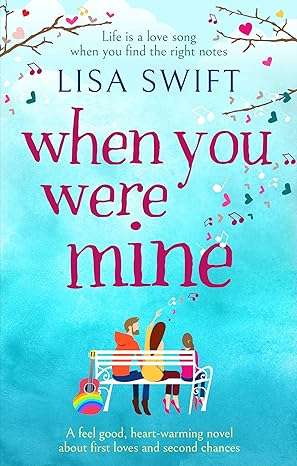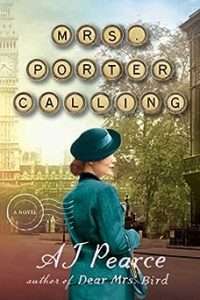REVIEW: The Hazelbourne Ladies Motorcycle and Flying Club by Helen Simonson

It is the summer of 1919 and Constance Haverhill is without prospects. Now that all the men have returned from the front, she has been asked to give up her cottage and her job at the estate she helped run during the war. While she looks for a position as a bookkeeper or—horror—a governess, she’s sent as a lady’s companion to an old family friend who is convalescing at a seaside hotel. Despite having only weeks to find a permanent home, Constance is swept up in the social whirl of Hazelbourne-on-Sea after she rescues the local baronet’s daughter, Poppy Wirrall, from a social faux pas.
Poppy wears trousers, operates a taxi and delivery service to employ local women, and runs a ladies’ motorcycle club (to which she plans to add flying lessons). She and her friends enthusiastically welcome Constance into their circle. And then there is Harris, Poppy’s recalcitrant but handsome brother—a fighter pilot recently wounded in battle—who warms in Constance’s presence. But things are more complicated than they seem in this sunny pocket of English high society. As the country prepares to celebrate its hard-won peace, Constance and the women of the club are forced to confront the fact that the freedoms they gained during the war are being revoked.
Whip-smart and utterly transportive, The Hazelbourne Ladies Motorcycle and Flying Club is historical fiction of the highest order: an unforgettable coming-of-age story, a tender romance, and a portrait of a nation on the brink of change.
Dear Ms. Simonson,
Huzzah. A new book from you. I’d almost given up when I saw it on a “to be released” list and sprang at the chance to read it. It’s a complicated and at times melancholy and heartbreaking book. It also, yeah, takes a while to get into gear and truly had me guessing how certain things would be resolved.
Constance Haverhill is drifting in the early summer of 1919. She has been firmly eased out of the job she did to “do her part” for the war effort. Dreading becoming a governess, she gladly agrees to be a companion to a (truly sweet) elderly lady at a seaside resort and there becomes acquainted with a group of women similarly looking for the means to support themselves. The War has changed social mores and expectations, or so Constance and the other women hope. But has it really and is Constance truly a part of this society or merely there for a summer?
Rereading my review of “The Summer Before the War,” I should have remembered that your style is to slowly introduce the characters, set the scene, and only then allow the story to get going. This mimics the slower pace of life in a smaller seaside vacation town of 1919. People are not flicking and scrolling their phone screens and rushing around. Even with the gentler tempo, things are still going too quickly for middle aged characters who decry the sudden changes that are jolting their world. Meanwhile (usually wealthy) young women who see new opportunities are champing at the bit to enjoy life or, if they’re working class, are desperately attempting to find a job and scrounge a living. Those who fought and survived are learning how to live with their new realities.
Tertiary characters fill out the background and show how various social outcasts ease through this world. Naturalized German Klaus was once a sought after waiter in better hotels but made it through the war working hard in low rent jobs in London. Captain Pendra, a skilled Indian pilot, had to approach the French to get a commission before the embarrassed British would accept his credentials. Simon and Matilde de Champney have always faced racism due to their mother and the fact that their parents weren’t married. Sam might have money but it was made through trade so he’s not quite totally accepted into the golden circle. Meanwhile as one working class man says the rich live by different rules.
Constance is inhabiting a middle ground. She’s not truly a part of the wealthy titled world that she lives in and can easily see herself sinking into the unnoticed working class. She knows that she must forge her way in the world which still views women as wives and mothers even though there is now a generation of women who will never find a husband. The camaraderie she sees in the motorcycle club draws her though some women are dilettantes and others are looking for money to supplement woeful pensions. I liked Constance and felt she was standing up for herself as well as she could in her situation. Yes, she bites her tongue at times but she has to keep on on the good side of certain characters who control her employment. But she does stick up for Mrs. Fog and that woman’s lovely second chance.
She’s not at all sure about the brother of her new friend, Poppy. Harris has inherited a barontency but is mired in depression due to his amputation and the feeling that he should have died in the war with his friends. He is (usually) well mannered but also brittle and given to retiring from social events. A strong sense of responsibility for his former mechanic and a gift from his sister might be what drags him back even before the stark realities of the financial situation of his estate yank him out of his funk. I could understand Harris’s desire to withdraw from company, especially as we learn of past relationships that have been broken. Poppy is a character who both charmed and annoyed me. Often her heart is in the right place but she can also duck responsibility when she feels like it and makes a decision that causes a stunned Constance to tell Poppy that she just doesn’t understand the people in this (rarified) world.
There are events and revelations that call out the racism and classism of this world. Some people will end up having to reap what they have sown. Some innocents will pay the price for jingoistic attitudes. I was annoyed at how a few people seemingly abandoned those who depended on them but at the same time, some of this was caused by the post war government policies dictating what genders could be employed. Still it stung. Rigid conventions almost upend a relationship until one person’s true colors emerge which allows the changing social mores to finally deliver what I’d been waiting for. This story is much more historical fiction with romantic elements than a romance. The pace is leisurely. Bad things happen to some people. Other people get off the hook. But Constance’s eyes are open to what she’s going into and Harris knows that he’s found the woman he can respect and admire. B
~Jayne


















